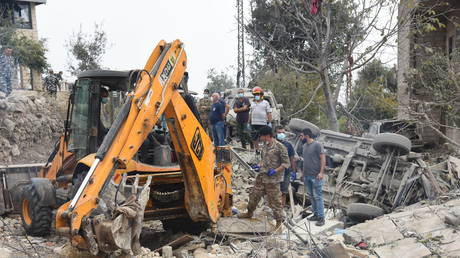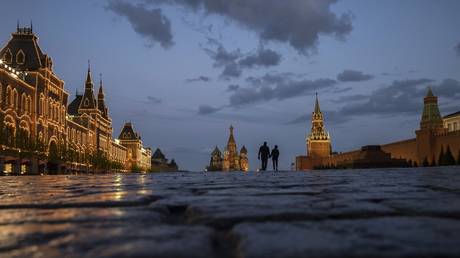Nan Ray, not pictured, moved from India to the US because she felt it was her grandmotherly “duty” to care for her grandchildren.
Mayur Kakade/ Getty Images
Nan Ray moved from India to live with her son and his wife in America when her granddaughter was 2.While the cultural shock was huge, she felt it was her duty as a grandmother to provide childcare.It was a sacrifice, but it helped her son and daughter-in-law achieve career success.
This as-told-to essay is based on a conversation with Nan Ray, 73, of Minnesota. It has been edited for length and clarity.
My granddaughter was a toddler when my husband and I moved permanently from India to the US.
We got our green cards in 2010 when she was 2 years old. The sole reason was to take care of her — and, subsequently, her brother, who was born in 2012.
We decided to leave our native country after one particularly fraught phone conversation with our only child, my son, who had stayed in America working after graduating from college in India.
“Mom, I need your help,” he said. He and my daughter-in-law had full-time jobs and were under much stress juggling careers and parenting.
They’d employed a nanny, but it hadn’t worked out. When you’re in a high-stress profession, you don’t want to keep dashing home from work to fill in the gaps in childcare. You need support and a buffer.
“I’m his mom,” I thought. “Even though he’s grown up now, it’s my responsibility to look after him and the rest of his family.”
To be honest, I didn’t consider the consequences of leaving my old life behind. It just felt like the right thing to do. In India, it’s relatively common for generations to live together, and everybody does their bit to help out.
My son and daughter-in-law trust us
My husband, now 82, had already formed a particularly strong bond with our granddaughter during the extended vacations we’d spent with her.
She didn’t go to sleep easily. But when my daughter-in-law put her in my husband’s arms, she’d drift off hearing his heartbeats. She and my son trusted us entirely.
When we arrived, I was 59 and still had a lot of energy. I did everything from changing diapers and potty training to cooking and taking the kids to fun places like the zoo.
I’m a former teacher who ran a school in Delhi. I took pride in teaching my grandchildren their first words in English and then a smattering of my mother tongue. We introduced them to Indian cuisine, but there was also the occasional McDonalds.
My husband and I have made sacrifices by leaving India
As for parenting style, we were mostly on the same page as my son and daughter-in-law, who was born in the US. The techniques we used reflected the way we raised our son when he was growing up.
It never occurred to us or my son and daughter-in-law to pay us even the smallest amount for childcare. They pay us in love. We preferred to think of their salaries going toward their future as they progressed in their careers as tech executives. It has helped them reach their potential; we’re so proud they’ve come far.
We live in a big house where everyone has their own space. We share a kitchen, though, and eat together. We celebrate all the holidays and festivals, whether Indian or American.
Still, I feel I’ve sacrificed for our philosophy of having a village to raise children. I don’t have much of a network of friends in Minnesota. I miss my relatives in Delhi.
But I tell myself, why have a family if you don’t want to be with them every step of the way?
Do you have an interesting story to share with Business Insider about grandparents and childcare? Please send details to jridley@businessinsider.com





+ There are no comments
Add yours